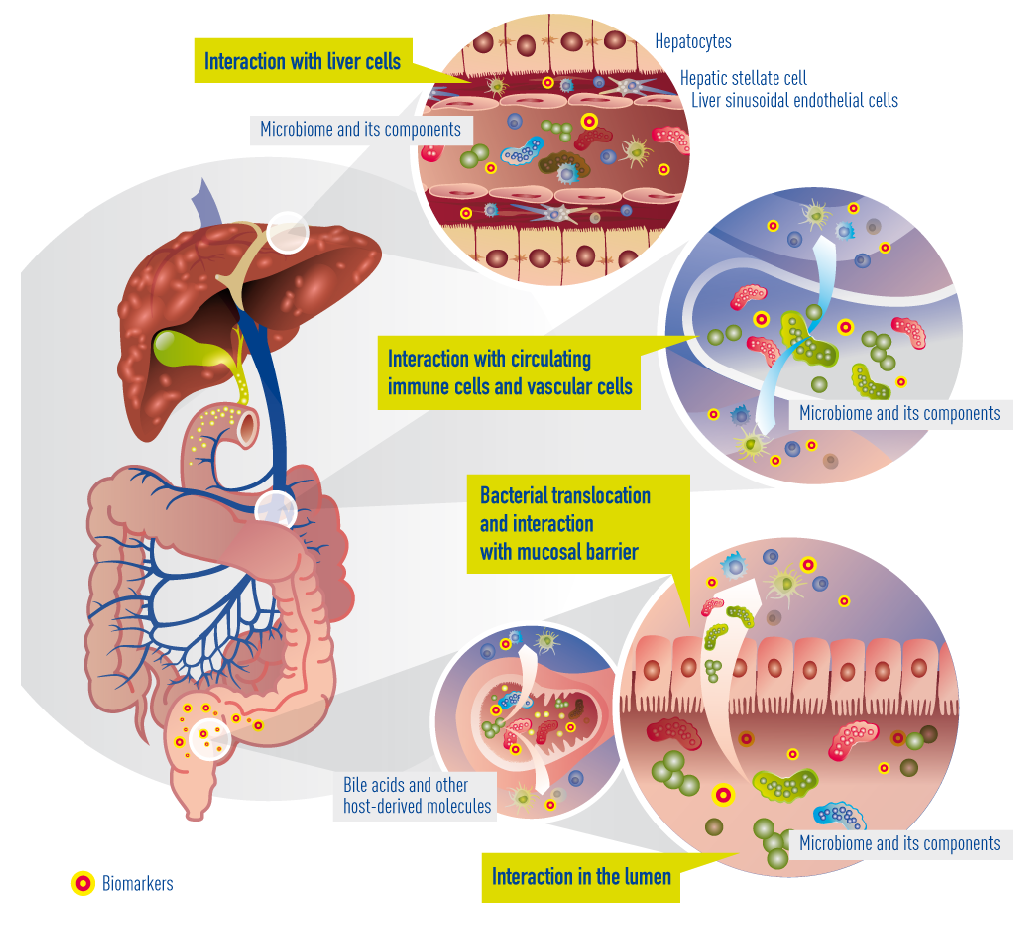Summary
Decompensation of liver cirrhosis and progression towards acute-on-chronic liver failure (ACLF) causes 1.2 million deaths per year. The gut microbiome is causally involved in cirrhosis progression, and is the first point where drugs interact with the patients. Drugs can alter the microbiome leading to unwanted effects or even facilitating their effects, but the microbiome metabolizes the drugs, shapes their effects and possibly determines the host response to drugs. As each person carries an individual microbiome, insight in these processes should help stratify or even personalize patient health care and treatment.

Currently known and suggested gut-liver interactions in cirrhosis. Impaired epithelial barrier (“leaky gut”) allows bacteria or bacterial products (metabolites) to translocate into the blood circulation and reach the liver. There, they interact with circulating and resident immune cells and liver cells. Concomitantly, bile acids and other molecules (e.g. antibacterial peptides) originating from the liver arbitrate between liver and gut microbiota.
The aims of MICROB-PREDICT are (1) to better understand the role of microbiome and the gut-liver-axis interactome with respect to microbiome functionalities, (2) to identify and validate microbiome-based biomarkers and signatures for personalized prediction of decompensation and ACLF, and response to treatment, (3) to design three new tests as easy-to-use tools and point-of-care, smartphone-connected nanobiosensors, and (4) to validate them in a randomized controlled trial. MICROB-PREDICT will assemble existing data and samples from major microbiome initiatives in hepatology (12 international studies, >10,000 patients), and enrich them with holistic and in-depth analysis using cutting-edge multi-omics technologies of host and microbiome from different body sites in samples of >1,000 patients collected in a longitudinal manner with sequential visits and controlling for confounders.
MICROB-PREDICT results will foster more accurate, personalized risk stratification, and significant steps towards personalized treatment of decompensated cirrhosis and ACLF. World-leading microbiome specialists, technology leaders, and clinical experts make this a programme of scientific excellence, while patient organisations, such as the European Liver Patients Association (ELPA), and the European Association for the study of the Liver (EASL) aim to channel our results into powerful dissemination, communication and exploitation.